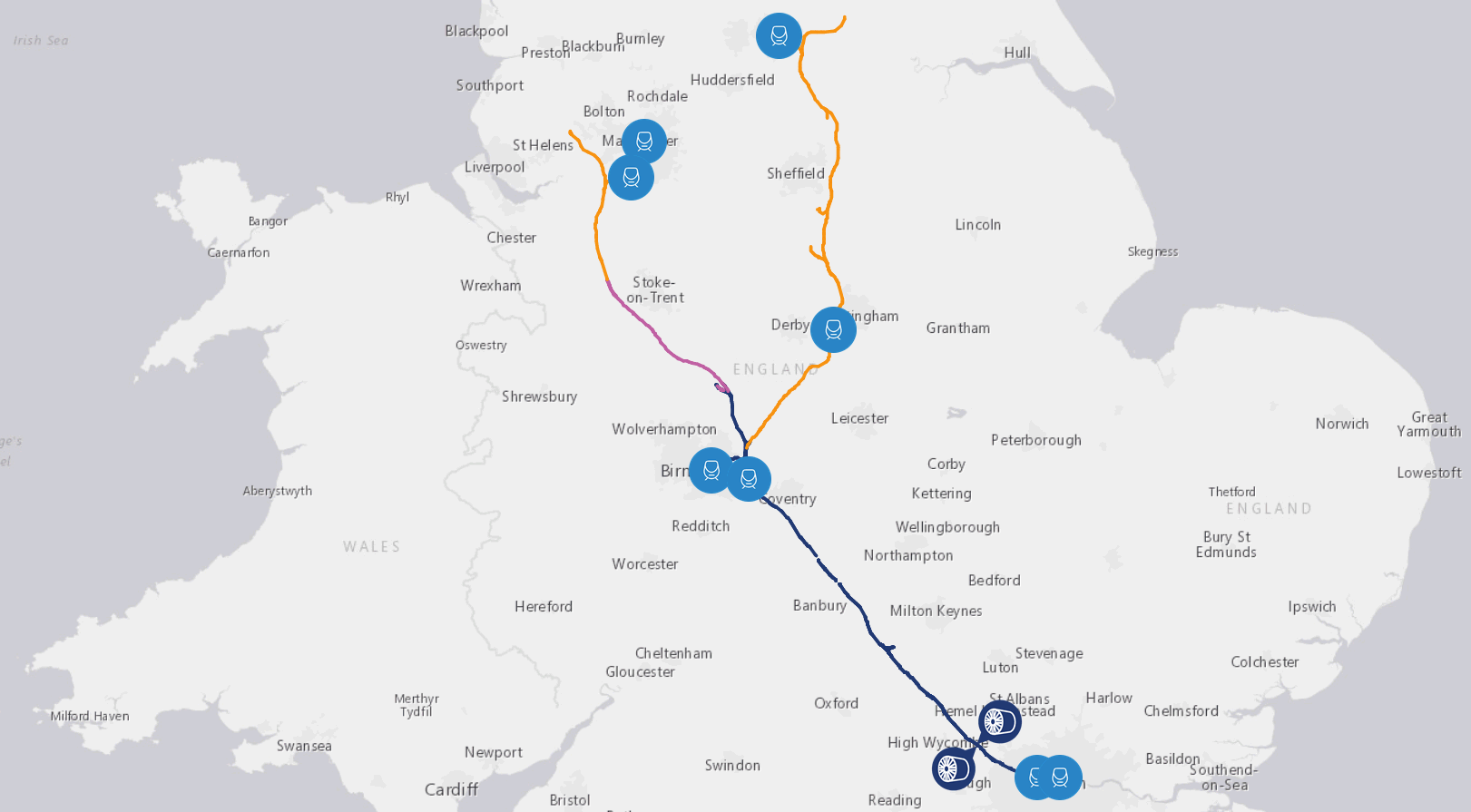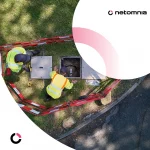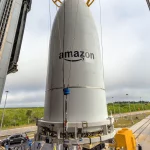MP Casts Doubt on UK Broadband Benefits of HS2 Rail Project

The MP for Chesham and Amersham, Sarah Green, has challenged the UK Government to make progress on commitments made to local authorities along the Phase One rail route for High Speed 2 (HS2), which among other things included the promise to construct a new “broadband superhighway” to help expand faster internet access.
The HS2 project is massively expensive – its current estimated cost is between £72bn and £98bn (at 2019 prices) – and along the way more than a few people have suggested that such money could have been better spent on improving gigabit broadband and road connectivity, among other things. But it did also pledge to bring some broadband benefits of its own.

The HS2 plan originally included the construction of a new “broadband superhighway” along the route (here), where high-capacity fibre optic cables would be laid. But a 2016 report from the High Speed Rail Committee (HSRC) noted that the legislation only made “passive provision for installation of broadband infrastructure on the route, but not actual installation such as ducting and cabling” (here). The same committee found that several areas along the route, which would not stand to gain directly from the railway itself, lacked good broadband.
Advertisement
At around the same time in 2016 a number of local authorities – including Lee Parish Council (Sarah Green’s constituency) – received an assurance about broadband provision from HS2 Ltd, which pledged to keep them “updated on the outcome of discussions with the Department for Culture, Media and Sport and [Building Digital UK] in relation to support for broadband provision for communities along the Phase One route.”
Sarah Green MP told the House of Commons:
“Apart from a few holding letters, The Lee Parish Council has not heard anything for three years. Will the Minister provide details about those discussions to reassure my constituents that they are indeed taking place?”
In response, Julia Lopez, the UK Minister for Digital Infrastructure, encouraged Sarah Green to write to her about the issue: “I am keen that any hon. Member should feel that they can write to me about issues in their area. We are trying to get a much better system up and running so that we can get such cases answered. I encourage her to write to me as I am very happy to look into her concerns.”
Sadly, it remains unclear just what kind of broadband connectivity benefits consumers can expect to receive from HS2, or indeed whether the new cables will reach every part of that route, or only certain areas. Naturally, Sarah Green and others were expecting “real, meaningful engagement, not insubstantial letters followed by radio silence.” But it probably doesn’t help that HS2 has been beset by significant delays.
As we’ve said before, HS2 is now so far behind the original plan that, by the time it has completed, the underlying problem may have already been resolved, at least for many of the areas along its route. Phase One will run from London to the West Midlands, where it will re-join the existing West Coast Mainline. Services will travel onwards to places like Manchester, Glasgow, Liverpool, Preston and Wigan.
Advertisement
However, Phase One will not now open until between 2029 and 2033. By comparison, the government’s Project Gigabit programme, assuming no significant delays, aims to have “nationwide” coverage of gigabit broadband (1000Mbps+ download) speeds by the end of 2030 (we suspect 97-99% may be more realistic, but that’s still good).
Furthermore, there’s a big question mark over how much of a realistic difference HS2 could make to broadband provision, since many parts of the areas on the HS2 route already have core fibre optic cables nearby. Sometimes the challenge is less about core fibre capacity and more about the cost of connecting individual homes in sparse rural communities. But clearly there will be some remote areas that could still benefit.
Mark is a professional technology writer, IT consultant and computer engineer from Dorset (England), he also founded ISPreview in 1999 and enjoys analysing the latest telecoms and broadband developments. Find me on X (Twitter), Mastodon, Facebook, BlueSky, Threads.net and Linkedin.
« New ISP Association Commitments to Help Fix UK Digital Divide






















































Yeah a train line will certainly help produce better broadband! Honestly, they’ll say anything to justify hiring more million pound plus salaried friends won’t they?
They need to really sell these using every propaganda trick because fact is that the vast majority of train lines around the world dont break even
Here in the UK, rail is already a massive bubble, even the TFL which has millions of passengers daily is in the red. Union mafias need to go and automation needs to come before rail becomes a viable transport option
True. So let’s close down the tube and force everyone onto the roads. That won’t carry any other costs.
Close local and national rail, too. Everyone unable to drive can take a cab.
Tad more complex than just revenue and expenditure. Many financial and otherwise benefits. Towns and cities grew around mass transit, whether rail or river.
Used to be able to return them to France then took control* of our borders, laws and money.
Highly recommend living in London for a while. The ‘boat people’ population is minimal, as you’d expect given it only became a thing a little over a year ago.
*Control may not include reduction in illegal immigration, having more money to spend on own priorities, total sovereignty or being able to ignore international law without consequence.
And you can of course provide the evidence for your assertion that each of the “boat riders [has] 12 babies each”, can’t you @Damien?
And if, as you say @Damien, the Stone Age is better than the current age, then why don’t you give up your mobile communications devices, your PC/Mac, the internet, wheeled & powered transport, salaried job, central heating, comfy house, longer life expectancy, …?
buggger lugz i do wonder if you know anything about infrastructure projects at all frankly
you would expect significant trunking to be laid as part of HS1 to carry cables associated with Railway — and additional cable dark fibre with hop off points should not beyond the realms of technology – just dont expect it until about 2027/2028 — as you wont see the track bed and the footprint really being in place and not one that gets done early
HS2 is not about getting places faster, its to get freight moving on the network. Passenger trains will run on HS2 and freight – currently congested – can have the ‘old’ lines. So if you’re building new lines, they might as well be fast lines which can compete with airlines for speed and have less environmental issues.
I’m a little sceptical about the broadband benefits of HS2.
The availability of sensibly priced backhaul is a barrier to building fibre access networks in harder to reach areas. Rail corridors should in theory provide a very effective means of providing that backhaul capacity.
However, in practise, those who have tried know that getting access to this infrastructure on existing rail tracks is a complete nightmare. Unless there is an organisation that can better facilitate this (and maybe Project Reach will facilitate that) then I fear communications providers will continue to go elsewhere.
At the moment I guess HS2 is still in the construction phase so is presumably not at present a part of Great British Rail may be that will make gain access to run fibre easier
Add the time taken on the various things around boarding and disembarking a plane and raw journey time isn’t such a thing. Ever have to check luggage to travel from Yorkshire to London on LNER?
Grid is always going to be more efficient than mass market. If it can be miniaturised and made light enough for plane travel it can be expanded in scale for use in grid generation with economies of scale.
Trains can carry more people than planes. Unless you’re going to run A380s everywhere of course, which will smash fuel efficiency.
Grid powered are now, super efficient electric planes are still a work in progress.
Not a train nerd, just a realist.
Unlike some, I believe that HS2 is a good thing as it will make it possible to remove large numbers of lorries from the roads, significantly improving congestion and reducing pollution.
That said, I think the potential benefit of using the route for additional network capacity is marginal. I’m not convinced that this is a problem that needs to be solved given the availability of existing capacity coupled with the ability to increase it by upgrading the electronics. In other words, there are good reasons to proceed with HS2 but this isn’t one of them.
The issue is also the lack of fully automated yards for getting containers on and off the trains as you have with shipping containers.
Then the next issue is goods trains that can auto split with one part continuing on in the train path and other going to sidings for unloading. Makes much more efficient use of the train paths. Likewise the ability for trains to auto join.
All doable tech but the rail unions everywhere squash it as it is too close the the driverless train thing.
That way you don’t just run one good train from A -> G direct from the container port.
ATM you run one leaving say every few hours but it is A -> G direct or A -> C direct maybe with some couplings and uncouplings.
But you run from A dropping at all point to G so you can run a very frequent good goods service that is at capacity and critically works for time sensitive deliveries. ATM the lead and lag times are such that lorry is often the fastest option.
@A_Builder
You reminded me of https://moveparallel.com/ who share your vision for autonomous rail freight.
It does nothing to get lorries off of the roads I have no idea why you think it would
The HS2 benefit to broadband is that fibre optic cables can easily be run a long the line.
The benefit isn’t massive since BT have ducts or poles across the UK already
Using railway lines for fibre optic cables has been around for years.
eg. https://www.networkrail.co.uk/industry-and-commercial/third-party-investors/network-rail-is-open-for-business/telecoms-opportunities/
Much of the container traff already goes by rail but there is a major contrainmt at Felixtowe as a part of the line is single track and shared with passenger traffic
Rail is only really of use for bulk point to pint traffic
the biggest capacity issue is Crewe – rugby and Wembley — building phase 1 and 1A of crewe enabled sigificant capacity between Crewe london for Freight and a lot of the intermodal stuff that there is no capacity currently to undertalke — could see massive lorry removal from M1 M6 corridor
A significantly lower proportion of freight travels by rail relative to our peers.
Point to point not a problem, fulfilment networks are hub and spoke. Rail to connect the hubs, road the spokes. One train takes many trucks off the longest stretch of the journey.
‘Surely with more people now working from home for good (like me, after they closed a lot of the control room)’
Gentle reminder you claimed it was your control room in your rented industrial unit fed by your 3.1 Gbps leased line you consume 150 TB/month on to support 150 CCTV cameras in your new venture.
Apart from stay at home times under full lockdown they can’t close your business premises if you’re there on your tod.
Your employer, of course, they can.
The biggest issue is it’ll cost around 5 times the initial estimate and probably only go as far as Birmingham before they pull the plug. Still those “dark consultants” will have made millions no doubt.
What HS2 contract? (from the North) – Doesn’t it stop at Crewe ..?